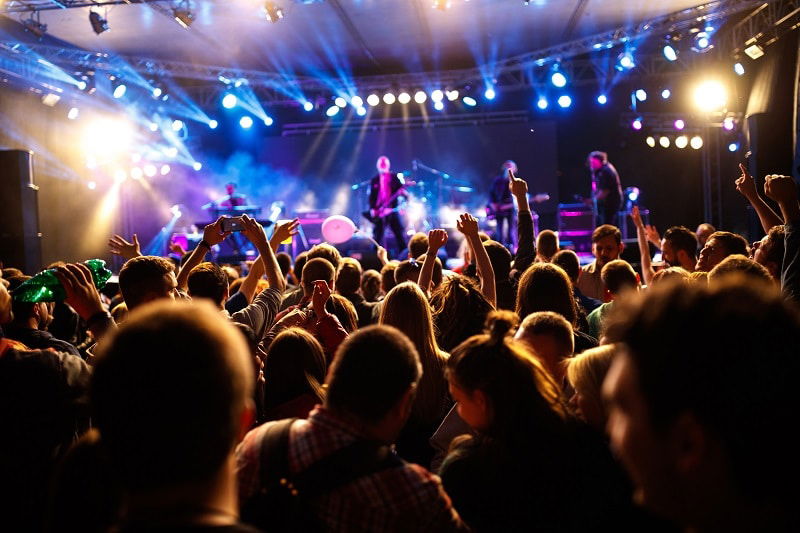Most of us live in a pretty noisy world, and it’s getting noisier by the minute. Cars, planes, machinery, construction, events, even sirens on police cars and other emergency vehicles can crank up the volume. Unfortunately, as our world grows louder, so the risk of noise-induced hearing loss increases.
Your hearing health is precious. Once lost, it is often lost forever. This is why it’s so important to know where your hearing is at most risk and how to protect it.
Loud places
There are plenty of places that come to mind when you think “loud,” but there are others that may be more surprising. Here are some of the top “loud places” that could hurt your hearing:
- Restaurants: That’s right. In case you haven’t noticed, restaurants are getting louder and louder. This can pose a risk for you as a customer and for the people that work in the restaurant. Between the loud music that’s often playing, the minimalistic designs that seem to amplify the noise, the many conversations going on, and the crashing dishes and utensils, it’s a recipe for noise-induced hearing loss. A survey by hearing aid manufacturer Oticon measured noise levels at some of the top restaurants in Austin, Detroit, Chicago, Denver, Nashville, Portland, San Diego, Seattle, St. Louis and Washington, DC. During the Saturday dinner service, the average noise level was 80 decibels. This is dangerously close to the generally accepted damaging level of 85 decibels and well beyond what many experts recommend as safe.
- Concerts: This isn’t any surprise to those who’ve attended a show. Decibel levels generally range from around 100 to 130 decibels depending on the music, venue, and where in the venue you may be enjoying the music.
- Sporting Events: If you like basketball, football, soccer, hockey, or other sporting events, you may need to take extra steps to protect your hearing while you watch the action. While it depends on the event, the crowd, and the venue, these events can be L-O-U-D. Anywhere from 85 to 120 decibels on average, with some well exceeding that
- The city: If you live in a city, you may tune out the car horns, construction, sirens, garbage trucks, and other background noise, but your ears could be paying the price for it. According to a five-year study to monitor noise in New York, “a large portion of the general population is exposed to noise levels that could result in long-term adverse effects on hearing.” Are you one of them?
- Your home: This space is where you have the most control over noise, but it’s essential to be aware that even here, there can be a risk of noise-induced hearing loss over time. Small appliances such as blenders and food processors, older (louder) dishwashers and washing machines, the television and radio turned up a little too high, and especially outdoor tools such as lawnmowers and snow blowers can exceed safe decibel levels.
How to minimize your risk
You don’t have to give up restaurants and sporting events and move to an off the grid cabin in the woods to protect your hearing health. Small steps, such as:
- Regular hearing evaluations to monitor hearing health and identify and treat hearing loss,
- Using hearing protection such as earplugs, ear molds, and noise-canceling headphones at loud events, noisy venues or when using loud tools,
- Minimizing the decibels wherever possible by turning down the television, investing in quieter appliances, opting for quieter restaurants and events.
These can all help protect your hearing and reduce your risk of noise-induced hearing loss over the long-term.
Contact our office for more information on noise-induced hearing loss and how to protect your hearing in today’s noisy world.




